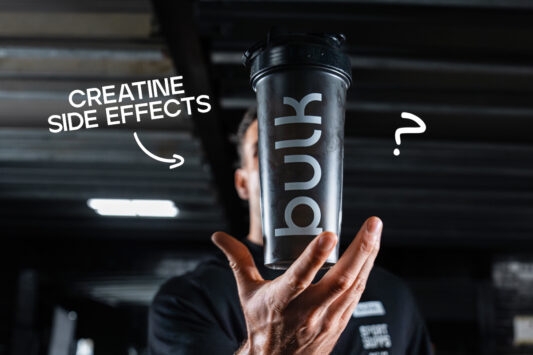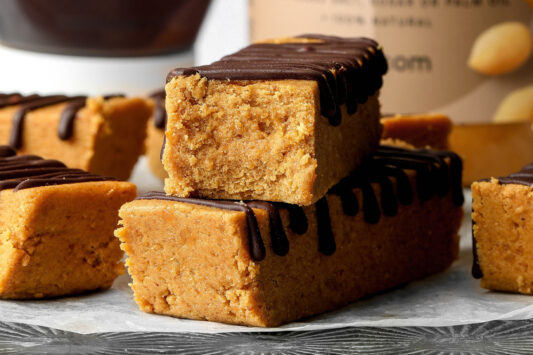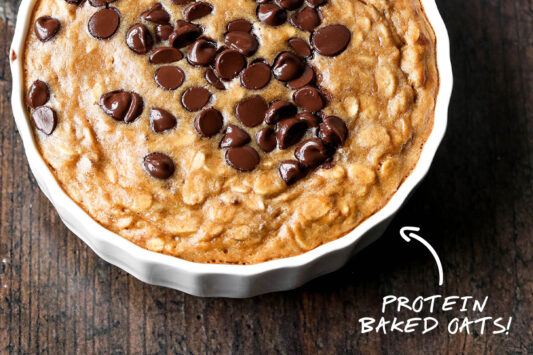The expression working up a sweat is usually associated with having a good workout, but what exactly does sweating ‘mean’ and does it tell us anything about how hard we are training, how much fuel we are using or how fit we are?
Body temperature
I’m sure you’re aware that sweating is an essential part of regulating our body temperature. The harder someone works and the higher the intensity with which they train, the more they are likely to sweat1. In this regard we could take a slight leap of faith and say that there might be some small association between working hard, sweat and fat loss. However, there are so many factors that influence the rate at which we sweat that means that the assumption that we are sweating more means we are losing more body fat is simply not accurate.
Water weight
Notice here I have used the term body fat not weight. Of course losing water means we lose weight, in fact for every litre we sweat we lose around one kg of bodyweight. Unfortunately though unless exercise and diet lead to us being in an overall calorie deficit water weight is all you will be losing no matter how hard you work or sweat.
Athletes and sweat
There is often also an assumption that fitter people also sweat less, this actually isn’t true either! Athletes, who train regularly actually adapt to become more efficient at regulating body heat and this means that their sweat glands can actually hypertrophy so they sweat more, regulate body heat better and perform more efficiently2. However, in this situation, or in general, people who sweat a lot, then need to consume water regularly as dehydration of over 2% of bodyweight can have a serious impact on performance, especially in endurance sports.
Loss of electrolytes
Sweat loss can also mean loss of electrolytes which are essential for normal cellular fluid balance, the function of our nervous system and muscle contractions. This can obviously impact on performance so these also need to be replaced, especially for those exercising for long durations in hot and humid environments3. For the regular gym goer, training for an hour or so in a nice air conditioned gym – the main thing is to stay hydrated. They will be able to replenish electrolytes through a normal diet in most cases, or you could supplement with Complete Electrolyte Tablets™.
External temperature
The most obvious consideration in terms of increases in sweat is temperature, especially when exercising in hot climates. For elite athletes it is important that they acclimatise to hot or humid environments in order for their body’s temperature regulation systems to adapt accordingly.
Individual considerations
Even within these groups of athletes, although changes in sweat rate are noted through training and environmental adaptations, the individual variations in sweat rate are quite large. It appears that some people are naturally just sweatier than others. This can also be influenced by our current hydration status and how much the body is trying to prevent water losses… the more hydrated you are, the more likely you are to have increased sweat especially during exercise. Therefore, making sure we have enough water is obviously important to ensure we are regulating our temperature properly and performing at our best in the gym.
Hydration
Staying hydrated has obvious effects on weight loss, performance and muscle gain in the sense that the better we perform in training the quicker and better the results our results are going to be. For most people to stay hydrated drinking when feeling thirsty is enough, however many people ignore thirst which might then affect performance. Most people need to drink around 2 litres of water a day to ensure they are properly hydrated, plus replacing any fluids lost during exercise, the easiest way to ensure you are hydrated is to check the colour of your urine, the clearer the better4!
We also get additional water from the foods we eat, and despite common misconceptions even tea and coffee contribute to keeping us hydrated. It is often thought that caffeine is a diuretic, causing increased urine output and dehydration, however this is only true in high doses in people who are not habituated to drinking caffeinated drinks. For those who drink caffeine regularly then it has no impact on our hydration status!
Staying hydrated might also have some direct benefits in terms of weight loss too. Drinking enough water helps maximise our metabolic output; a study found that drinking 500ml of water promoted increases in metabolism, but before we get too excited about this, the impacts are only small with around an extra 15kcal per hour when compared to drinking only 50ml of water5. Drinking water with meals can also help with perceptions of hunger and in some people might help them feel fuller, helping to control food intake and make dieting that bit easier. However, this does not seem to have a big impact on how many calories people actually consume in a meal if left to their own choices, so it is certainly not going to work as a strategy on its own without overall consideration of how to best to control calorie intake.
Summary
In summary, staying adequately hydrated is important to help maintain our physical and mental performance, however sweating as a measure of how hard we are working, how fit we are and how much weight we lose is not an accurate indicator and is influenced by several factors including temperature, humidity, hydration status and how adapted we are to a specific environment. To ensure you drink enough water the simplest way is to make sure you have water at hand and take sips throughout the day whenever you feel thirsty and to make sure that your urine stays fairly clear. It is also a good idea to drink some water before, during and after exercise to make sure you prevent excessive water loss and replace fluids lost during exercise.
References
1.) Holmes et al., (2016) The Effect of Exercise Intensity on Sweat Rate and Sweat Sodium and Potassium Losses in Trained Endurance Athletes, Ann Sports Med Res 3(2): 1063.
2.) Lara et al., (2016) Inter-individual variability in sweat electrolyte concentration in marathoners. Journal of the International Society of Sports Nutrition, 13:31
3.) Cheuvront and Kenefick (2014) Dehydration: Physiology, Assessment and Performance Effects. Comprehensive Physiology, 4:257.
4.) Shirreffs (2000) Markers of hydration status. Journal of Sports Medicine and Physical Fitness. 40(1):80.
5.) Boschmann et al., (2007) Water Drinking Induces Thermogenesis through Osmosensitive Mechanisms. The Journal of Clinical Endocrinology & Metabolism 92(8):3334.
















